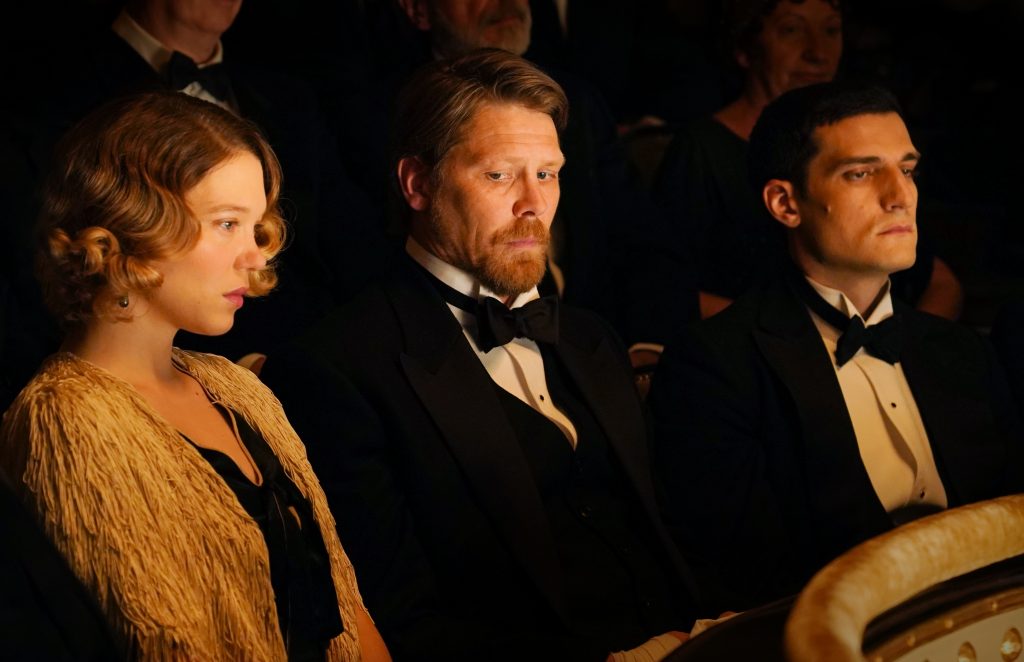
„It is a female gaze looking at this creature as an exotic human being, a traditional male. And that is the way female characters have been treated for a long time – being looked at .“ Ildikó Enyedi about her new film „The story of my wife“ starring Lea Seydoux and Gijs Naber.
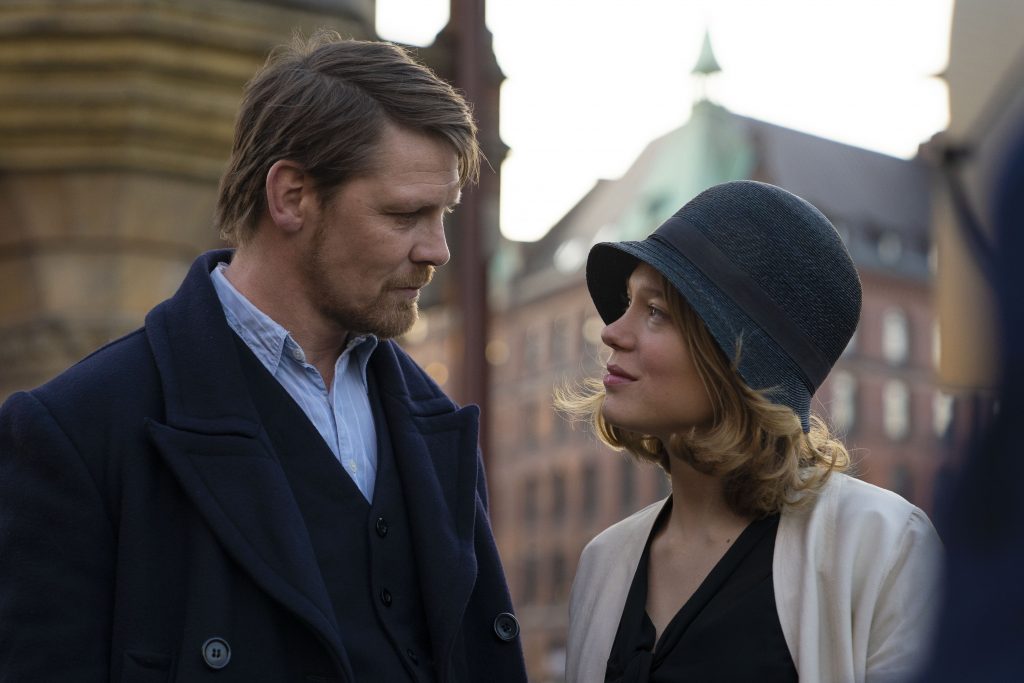
The Vortex: Mrs. Enyedi, your first movie after winning the golden bear of the Berlinale in 2017 for „On body and soul“ is an adaption of the novel „The story of my wife“ by the Hungarian author Milan Füst? Why did you choose to make it and what is your personal connection to the story?
Ildikó Enyedi: I think this story speaks about very important issues everyone can relate to and somehow it packages these in a quite easily followable story. Through being touched, the audience can think about their own questions – that was the reason.
V: Is it true, that you have read the book many years ago in your youth?
E: Yes, it is true. When we are teenagers, we think about these big questions. What is life all about, what is the meaning of life? How should we live this life? When we somehow face the fact, that it is not endless, what are we going to do with it? This book is touching this subject on every page. I wanted to follow its method, not the style.
V: So, the philosophical questions in life are important to you here?
E: Yes, there is a sort of Guru attitude in the book, which is irritating to me. The film speaks about all these aspects more indirectly.
V: The title of the film is „The story of my wife“ but I mainly see the story of a man. He is in every scene. She is there too, it is about them, but I don’t see a classical love story. Shouldn’t the title rather be „The story of my husband“? Masculinity plays a big role here.
E: The „my“ is an important word here. We are fully emerged in the captain Jacob Stirr and we follow a men trying to understand another human being, who is his wife. So, the story of my wife is my story. The difference between the film and the book is, in the movie we are following the captain we don’t see anything what he couldn’t see. Our questions are similar to his ones, but we are not inside of his brain, we observe him. This is my gaze, it is a female gaze looking at this creature as an exotic human being, a traditional male. And that is the way female characters have been treated for a long time – being looked at. They never represented the general human, they always represented the peculiar feminine. Here it is the peculiar masculine, which I want to explore together with the audience.
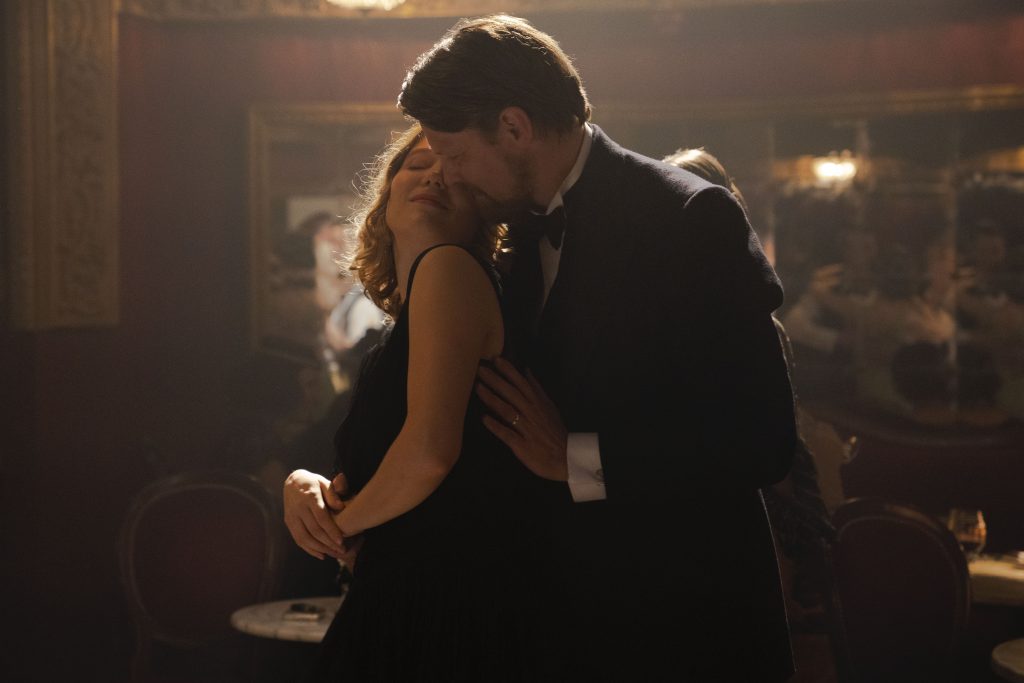
V: Were you also inspired by the MeToo Movement in making this movie?
E: I wanted to realize this movie a very long time ago and after the success of Body and Soul there was a very narrow window, in which we got the money for such an expensive project. When we started to prepare it, the MeToo Movement started. I already had so many hopes, in the last 30 years, that all our basic habits will change and now they are changing in a very impressive speed. And therefore, I wanted to underline a bit more this aspect of watching a human being like an exotic animal: a male who was raised in these classical traditions, his job, his work which is very much embedded in a long time tradition living only with male companions on the boat. I wanted to underline this aspect a bit more.
V: Control is a big theme here and especially for Jakob how to get the control back which he has lost through this woman, right? That’s what the game is about.
E: When he is losing it, he feels the loss and gets more and more in panic. He has no other tools, what he has learned is: I have to be in control and then everything is fine. When I am not in control something is wrong. At the end he understands that he didn’t lose anything, he is not the head or the coordinator of something of a human relationship of the world, but he is part of it. And when you are part of it, it doesn’t mean that you are less worth. You can really enjoy this sort of richness. That is what I wanted to show at the end of the film, he tries to understand and embrace how rich and how mysterious the world is, which he wanted to control before.
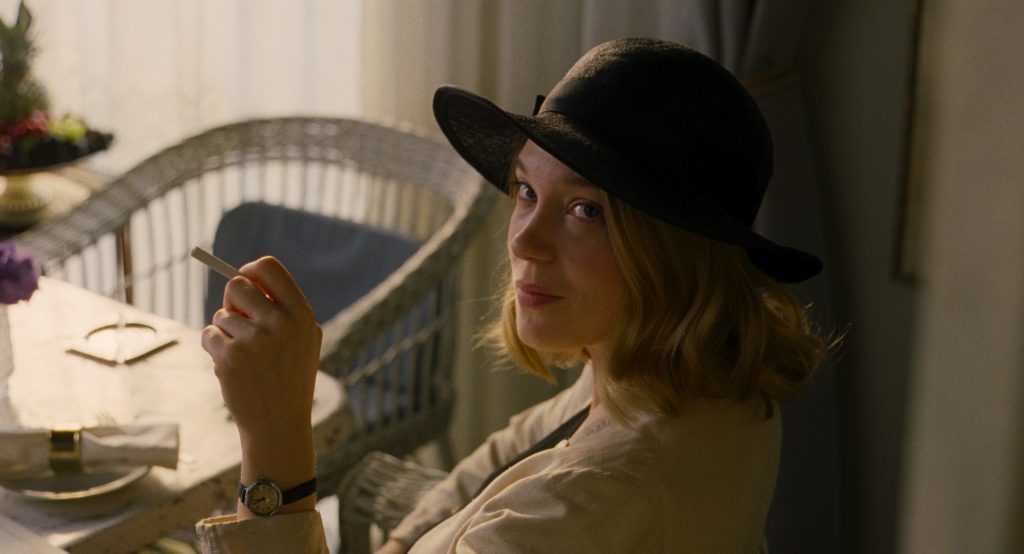
V: A big part of the movie is located in Hamburg, beautiful with its canals and bridges, but a bit boring compared to Paris or Berlin. Why did you choose this City for their story?
E: In the original novel the nationality of the people, their names, the locations have a sort of archetypical importance. It is not by chance that they are in Paris when they meet and that she is French, a Parisienne. Everything else is built around that. In the novel it is not Hamburg it is London. And Paris and London are two Bourgeoise towns which have a distance to the captain. As Paris is so expressively Lizzy, I wanted to show a place which is expressively Jacob. His values, his stature, his world view, all what he was losing is like Hamburg, a Hansa town. The heavy kind, it is well built and proud of its hard and honest work. I you founded a company you would like it to be there and still exist in 400 years. Here in Hamburg exist proud protestant values and it is even more heartbreaking when they arrive there and the captain could be like a fish in the water, but he is already disturbed. When he goes to the shipping company, he is begging for a humiliating clerk job, because he doesn’t want to be away from his wife for so long.
And for Lizzy there are many signs, that she doesn’t feel at home. The apartment in Paris is very different, that sort of transparent, elegant, Parisian style which is furnished by her, and Lizzy stands for. Everything here, was her choice. This rented apartment in Hamburg with thick, dark furniture, that was already there with narrow windows and ceilings.
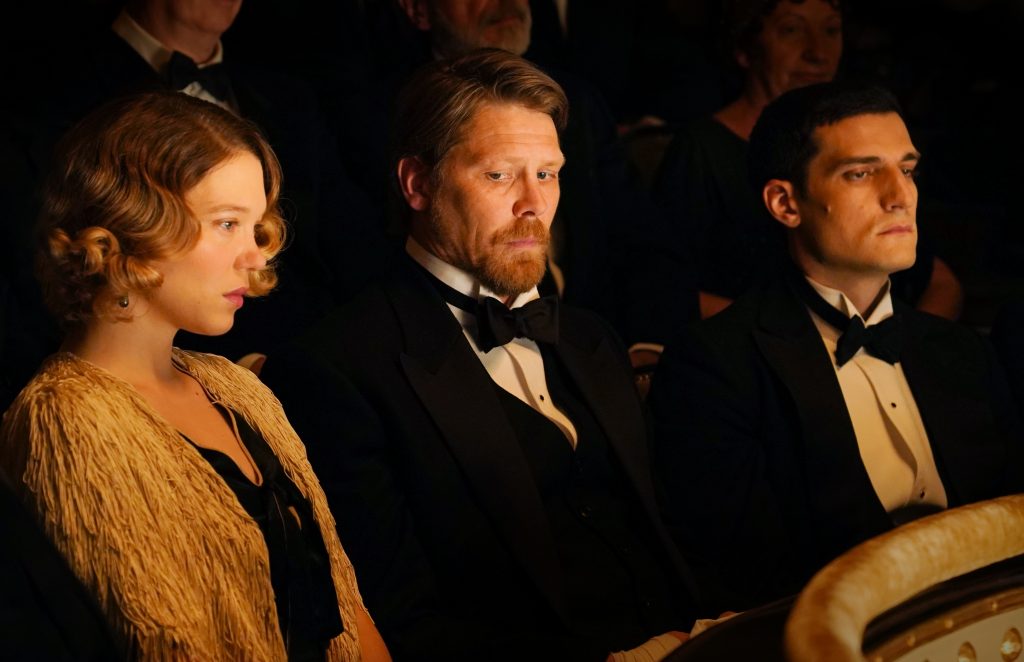
V: Why did you choose to work with these two actors Lea Seydoux and Gijs Naber?
E: I already had a Norwegian actor for Jacob and a French actress for Lizzy, but I am very happy, that through their agent, I met Léa and I knew immediately, that I wanted to make the movie with her. So, I declined the previous actors and when I saw Gijs in a short film, I thought that this guy has an enormous potential. You could see his charisma and his very fine acting tools. A big heart and soul, very well trained. Charisma – either you have it, or you don’t have it on screen. And when I saw them together, I thought these could be two facets of the same soul, the same person. They have a similar look – high cheek bones, blond, blue eyes.
V: You are working with the seven stages Jacob goes through like: solving problems, social life, losing control, the power of sensuality, chasing the truth and so and you expose them with headlines in the film, like chapters. Can you tell me why and which chapter is the most important stage?
E: I think all of them. The fact, that sometimes this is a quite meandering, labyrinth-like story we stop for a second when the chapter changes. These chapters don’t exist in the novel. I wanted to emphasize, this is not about jealousy, or about husbands and wives, it is about much more. I wanted to summarize those different approaches, how the captain discovers new facets of his life. At the same time things are falling apart because he is losing his well-functioning tools. So, in a way the chapters work together, they have a relationship with each other.
V: The camera work of Marcel Réve is very impressive. Sometimes the camera is very intimate, close by the characters especially in the love scenes, and then it shoots from very far away and it feels like Lizzy is secretly observing Jacob. He is looking for her, while she observes him.
E: Absolutely. She is not that sort of teacher, who doesn’t say do this or do that. But she asks him: will you realize, will you let go this sort of tension? In the bathroom scene, she verbalizes that. She says to him: “Don’t wait for life to come to you, you have to approach life. Otherwise it punishes you.“ That is the key scene in the film.
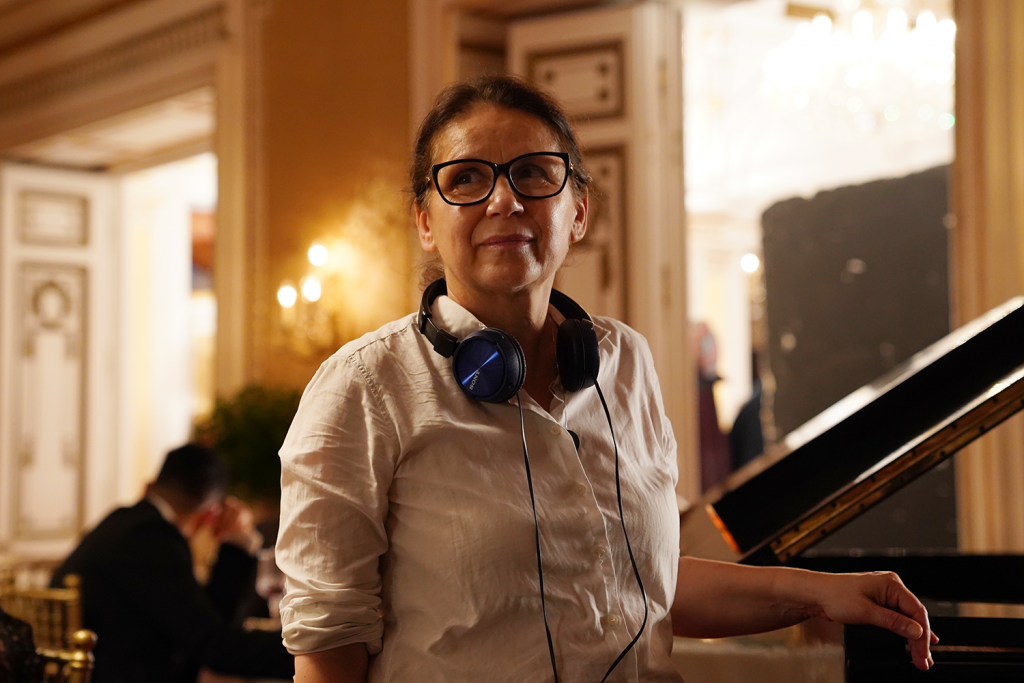
V: I know, you have a big heart for animals. Your Berlinale winning film was about animals as well. Here it is about whales. Is there a special meaning behind this animal? Or is it just about their beauty and the ocean?
E: Actually, nothing in this film has a metaphoric meaning. I wanted to keep myself distant from that. Because if there would be, I would step forward as the author and I didn’t want that. Somehow, I wanted to start this film from under water. The Aquatania his ship, is a huge heavy boat floating on a surface with this huge amount of water underneath. So here we can see how he builds his little life, has his little rules, but there are forces much more elementary underneath. With my editor I watched amazing under water footages of people free diving, without oxygen. In one of the footages, there was a diver swimming around sleeping whales and it was mind-blowing. I watched these animals and thought about Jacob as a type of physically really strong human, of whom you think they can be violent and are very sure about themselves. But they can be full of doubts and have a tenderness too. These huge animals which are not predators, they have something from the character of Jacob, I felt.
Thank you very much for the interview Mrs. Enyedi!
„The Story of my wife“ starts on the 4th of November all over Germany in a movie theater near you.